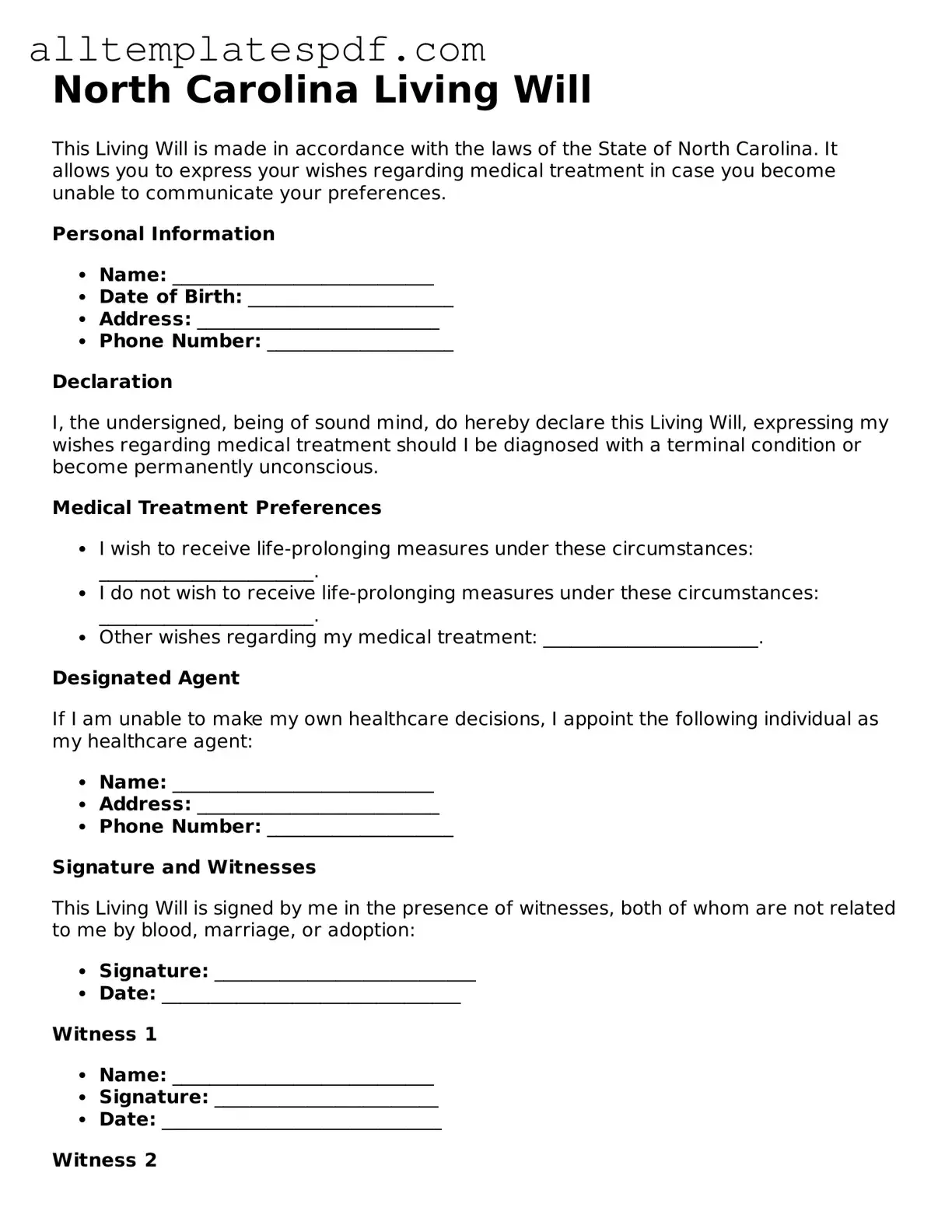Filling out a North Carolina Living Will form is an important step in planning for future healthcare decisions. However, many people make mistakes that can lead to confusion or even invalidate their wishes. Here are ten common errors to avoid.
First, many individuals forget to sign and date the form. Without a signature, the document lacks validity. It’s essential to ensure that your Living Will is signed in the presence of a witness, as required by North Carolina law.
Second, some people neglect to choose a healthcare agent. A Living Will outlines your wishes, but having a designated person to advocate for you can make a significant difference. Without this choice, your intentions may not be carried out as you desire.
Another frequent mistake is using vague language. Phrases like "do everything possible" can lead to confusion. Be specific about your wishes regarding medical treatments and interventions to avoid misinterpretation.
Additionally, failing to update the document when your circumstances change is a common oversight. Life events, such as a serious illness or changes in relationships, may require you to revisit your Living Will. Regularly reviewing and updating your form ensures it reflects your current wishes.
Some individuals mistakenly think that a Living Will is the same as a Power of Attorney. While both documents are important, they serve different purposes. A Living Will focuses on healthcare decisions, while a Power of Attorney allows someone to make financial decisions on your behalf.
Another error is not discussing your wishes with family members. Open conversations can prevent misunderstandings and ensure that your loved ones are aware of your preferences. This step can make a challenging situation easier for everyone involved.
Many people also overlook the importance of having two witnesses. In North Carolina, the law requires that your Living Will be witnessed by two individuals who are not related to you and who do not stand to gain from your death. Skipping this step can render the document invalid.
Some individuals fail to keep copies of their Living Will. It’s crucial to have multiple copies and to share them with your healthcare provider and family members. This way, your wishes are accessible when needed.
Lastly, many people underestimate the significance of reviewing state laws. Each state has specific requirements for Living Wills. Familiarizing yourself with North Carolina’s regulations ensures that your document meets all necessary criteria.
By avoiding these common mistakes, you can create a Living Will that truly reflects your wishes and provides peace of mind for you and your loved ones.

